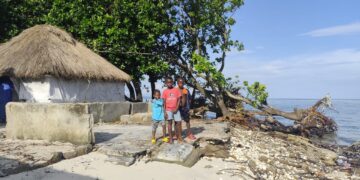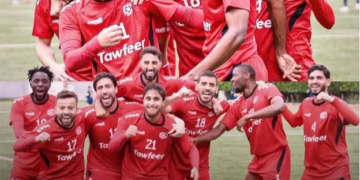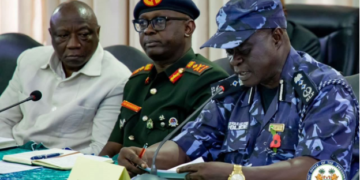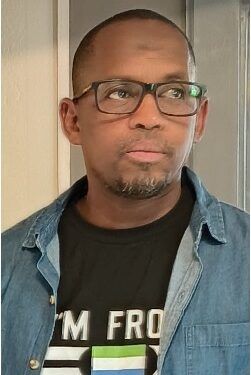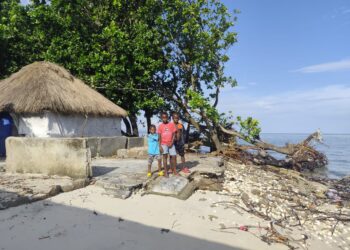By Independent Observer Staff Writer
Independent Observer (IO): Mr. Jalloh, thank you for joining us today. Your book Monopoly of Happiness: Unveiling Sierra Leone’s Social Imbalance has been widely discussed, along with your essay The Misfit No One Can Tame and your “Can We Talk, Mr. President?” column series. Could you start by explaining what motivated you to write Monopoly of Happiness?
Alpha Amadu Jalloh (AAJ): Thank you for having me. Monopoly of Happiness is about exposing the structural inequalities and social imbalances that shape life in Sierra Leone. What motivated me was the recurring pattern I see in governance and society: a small group of elites consolidates wealth, political influence, and social power, often at the expense of the majority. These imbalances are not limited to politics; they affect education, healthcare, employment opportunities, and even the most basic human rights. The book examines how ordinary Sierra Leoneans navigate these challenges and how a system designed to favor the powerful keeps people trapped in cycles of poverty and disillusionment.
IO: Your recent book tour in Europe drew attention from international audiences. What were some of the key reactions?
AAJ: European audiences were struck by the systemic human rights violations I highlighted. Many were unaware of how laws like the Cybercrime Act, ostensibly designed to protect digital spaces, have been used to silence journalists and critics. They were particularly interested in the contrast between legal frameworks and their practical application. Citizens who report corruption, expose mismanagement, or critique government officials often find themselves targeted under these laws. Audiences were also moved by the discussion on societal neglect of vulnerable populations, particularly women, youth, and people struggling with addiction.
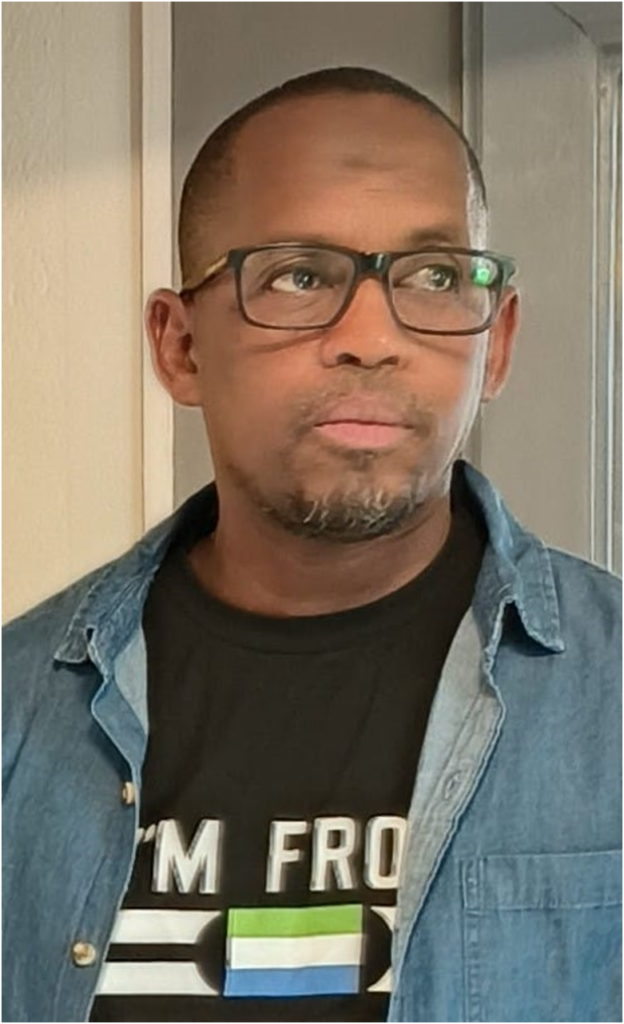
IO: Let’s discuss these laws. The Cybercrime Act, for instance, has been controversial. What’s your assessment?
AAJ: The Cybercrime Act is a classic example of legislation that promises protection but can be misused to limit freedom of expression. Journalists, bloggers, and citizens can now face fines or imprisonment for sharing information that is deemed false, misleading, or offensive, even when it is accurate and in the public interest. It has created a climate of fear, discouraging whistleblowers from speaking out. While cybercrime protection is necessary, the law’s current enforcement undermines fundamental rights and disproportionately affects those without political influence.
IO: Your essay The Misfit No One Can Tame complements this discussion. Could you elaborate on that work?
AAJ: Absolutely. The Misfit No One Can Tame celebrates individuals who resist conformity in a society that rewards compliance and punishes dissent. These are people, both inside and outside government, who challenge corruption, nepotism, and arbitrariness, often at great personal risk. It complements Monopoly of Happiness by focusing on the human element: courage, integrity, and the refusal to be silenced by a system designed to maintain the status quo. The misfits are the ones who remind society that justice, accountability, and human dignity cannot be compromised.
IO: Your work also addresses pressing social issues, including drugs and human rights. How do these intersect in Sierra Leone?
AAJ: Sierra Leone faces serious challenges with both recreational and prescription drug misuse. Weak law enforcement, lack of rehabilitation programs, and societal stigma mean that people struggling with addiction are often criminalized rather than supported. Human rights intersect because drug users are frequently denied due process, access to healthcare, and social protection. Policies ostensibly designed to combat drugs often punish the poor and vulnerable rather than addressing root causes like unemployment, trauma, and mental health. My advocacy stresses rehabilitation, education, and human dignity rather than punishment.
IO: Another concern you’ve written about is the waste of public resources on international travel by the President. Could you share your views?
AAJ: This is an issue I have consistently highlighted in my “Can We Talk, Mr. President?” series. The President’s frequent international travel consumes millions of dollars from our tax revenue, often for purposes that benefit little domestically. Instead of investing in Sierra Leone’s infrastructure, healthcare, or education, we see extravagant trips abroad, attending conferences, receiving awards, or meeting international dignitaries. Many of these trips could be replaced with initiatives within the country that would stimulate tourism and economic growth. Sierra Leone has immense natural and cultural beauty that could attract international visitors. Imagine the benefits of properly developing our beaches, mountains, and historic sites rather than wasting taxpayers’ money on repeated overseas flights.
IO: Speaking of domestic investment, what is your take on projects like the TUMABOM Rice Project?
AAJ: The TUMABOM Rice Project, in principle, is a step in the right direction because food security is critical. However, many projects like this often suffer from mismanagement, underfunding, or political patronage. Without proper oversight and a commitment to equitable distribution, even good ideas fail to reach the communities that need them most. Development initiatives must be transparent and genuinely beneficial to ordinary citizens, not just vehicles for political gain.
IO: Education has been a recurring theme in your writings. How do you assess the current state of Sierra Leone’s educational system?
AAJ: Education remains underfunded and unevenly distributed. While policies have been announced to improve access, many schools lack infrastructure, qualified teachers, and learning materials. This creates a system where children from wealthy families continue to thrive while the majority are left behind. Education is the foundation of societal change, so ignoring its shortcomings is not only unfair, it undermines the country’s long-term development.
IO: You’ve also critiqued the political system, particularly the proportional representation system and the proposed power-sharing government. Can you expand on that?
AAJ: The proportional representation system, while theoretically inclusive, has proven in practice to weaken accountability and transparency. It often allows party elites to control candidate selection and rewards loyalty over competence. It risks diluting the voice of ordinary citizens because the system emphasizes party control rather than direct representation. As for the President’s proposed power-sharing government, it is, frankly, absurd. It’s like a child who has already eaten his own cake and then becomes greedy, insisting on sharing someone else’s cake when it is his turn. This idea is not about fairness; it’s about maintaining political control under the guise of generosity.
IO: And what about the Constitutional Review Committee?
AAJ: The Constitutional Review Committee could be a tool for meaningful reform, but there’s growing concern it will be used to further entrench power rather than expand rights or representation. If the committee’s work is manipulated to favor the executive, it will become another mechanism for maintaining control rather than serving the people. The public must remain vigilant and ensure that any constitutional reforms enhance democracy and equity.
IO: How does Monopoly of Happiness propose solutions to these challenges?
AAJ: The book advocates for institutional reform, cultural transformation, and active civic engagement. Stronger enforcement of human rights, equitable resource distribution, and transparency in governance are essential. At the societal level, we must reject the idea that wealth and influence justify impunity. Civic education, youth empowerment, and engagement of marginalized groups are key to breaking cycles of corruption, social injustice, and poverty. Only systemic and cultural reform together can reshape the social and political landscape.
IO: Looking ahead, what is next for you in writing or advocacy?
AAJ: I plan to continue writing and speaking about governance, human rights, and social reform. I’m expanding initiatives on youth empowerment, civic education, and public awareness campaigns around digital freedoms and human rights. I also aim to foster international dialogue on Sierra Leone’s social challenges, bringing lessons learned abroad back home to strengthen advocacy and accountability.
IO: Thank you, Mr. Jalloh, for your insights.
AAJ: Thank you. It’s always a privilege to engage in meaningful dialogue about the future of Sierra Leone.


